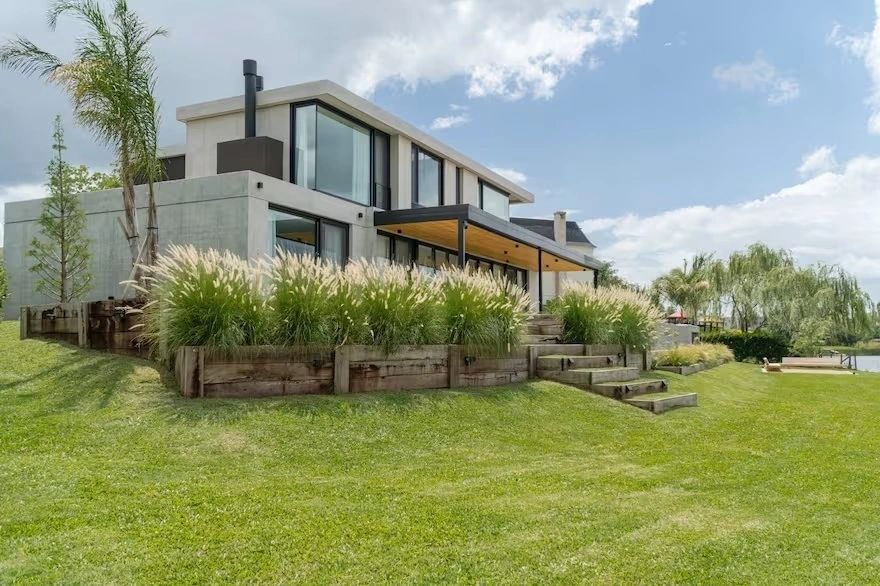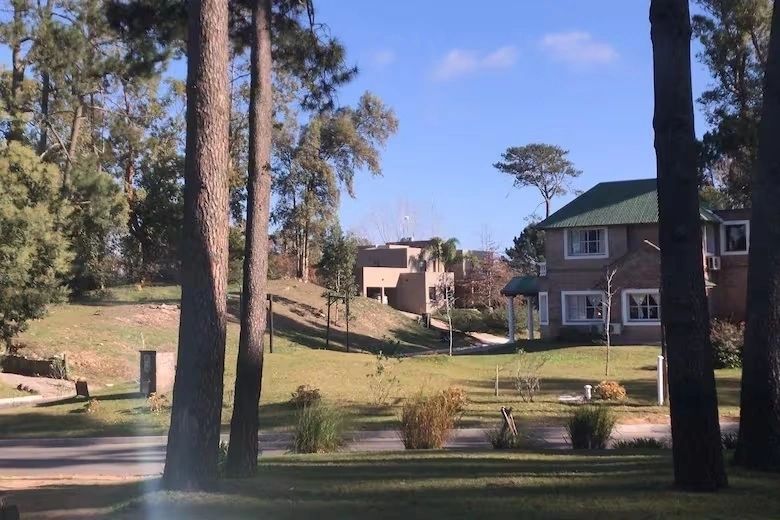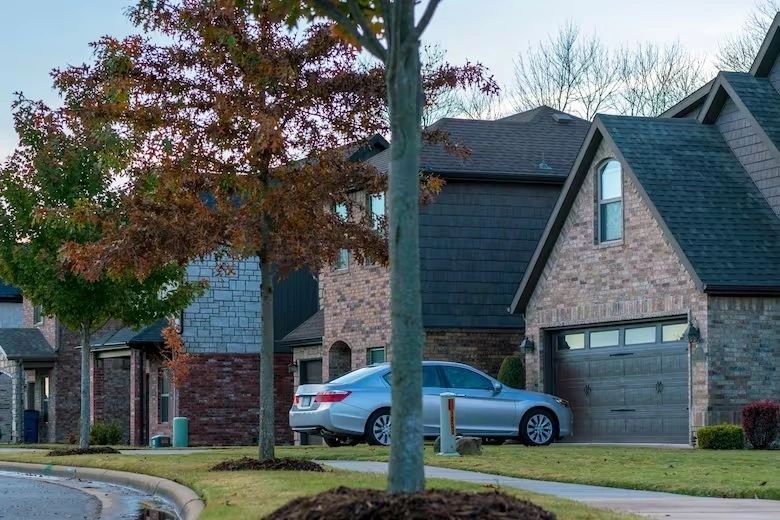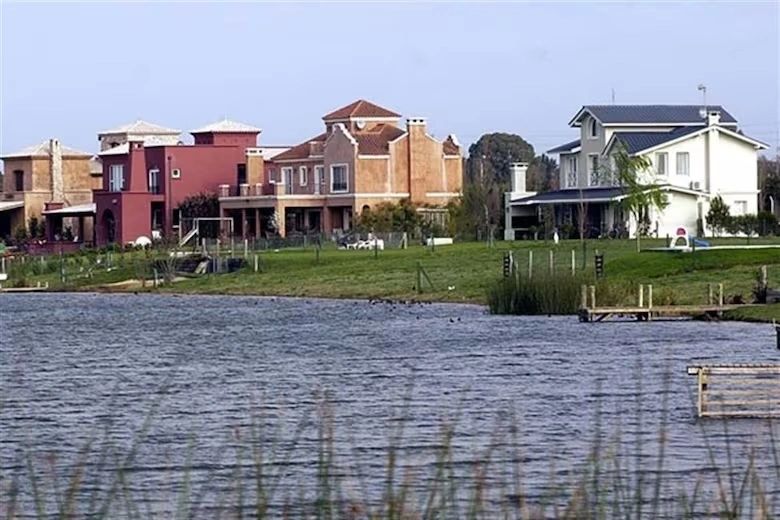BuySellBA
Administrator
Kicillof's tax: Residents of gated communities who did not register their houses refuse to pay the 200% increase - La Nacion Propiedades

Source:

Impuestazo de Kicillof: los vecinos de los barrios cerrados que no escrituraron sus casas se resisten a pagar el aumento del 200%
Desde ARBA dicen que las distorsiones en los montos se dan en los barrios cerrados en los que los vecinos no tienen escriturados sus terrenos por no estar hecha la subdivisión
January 27, 2024
From ARBA they say that the distortions in the amounts occur in the closed neighborhoods in which the neighbors do not have their land deeds because the subdivision has not been done.

Residents of gated communities reacted to the increase in real estate taxes
The Collection Agency of the province of Buenos Aires (ARBA) reacted to the “protest” carried out by the residents of the Pilar del Este private neighborhood , who denounced through the change.org platform how increases of up to 200% impacted them. of the real estate tax that will begin to arrive in February. Cristian Girard , executive director of the organization, stated that it is the developers who "due to non-compliance, do not assume the payment of taxes in their business equation and pass them on to the buyers through the expenses."
The conflict over the lack of deeds on the land of the gated communities dates back to years. In 2020, the governor of the province, Axel Kicillof, decided to begin a regularization process in the gated communities that did not have the subdivision of the land , so they were in an “irregular” situation for ARBA , that is, they When they see the cadastre, the land appears as vacant or rural land and due to these classifications, fewer taxes are collected than what would correspond. In these cases "there is no tax evasion", but the developers - who are the ones who pay until they pass the amounts to the owners - "delay the recategorization as a strategy" to pay less, the provincial body states.

In 2020, Kicillof began a regularization process in the gated communities that did not have the subdivision of the land.
Given the strong statements of the official, the Chamber of Urban Developers (CEDU) emphasized that the paper problem was already recognized by the Province with its Regularization Plan 2019, 2020 and 2022 . “These regulations address the problem and try to solve it,” said Mali Vázquez, executive director of the Chamber and clarified that only in the last year were there results, since 45 Final Technical Appointments (Feasibilities) were obtained out of 200 projects to be regularized . “To the extent that this initiative continues, it is possible that a good part of what is underway will be regularized,” she clarified.
In 2020, Kicillof himself stated that he had no prejudice towards gated communities and that he was aware of the Province's responsibility in delaying the procedures that, according to the developers, could take up to 10 years. From the developers' side, they argued that “the procedures in the province of Buenos Aires were bureaucratic” and that if they had to wait for all the approvals, they would end up not starting the project for at least 10 years from when they bought the land . What happened to them is that it took them much longer to get the approvals than to build the infrastructure and sell the entire neighborhood.
Beyond the intentions, the regularization process is complex because there are several issues to be resolved such as, for example, the Complementary Tax , a tax that must be paid by those who have more than one property in the province of Buenos Aires and that in the case of the closed neighborhoods due to the impossibility of the neighbors to deed the lots , ARBA wants to charge the developers . This situation generates that in the final instance when the neighborhood is already practically regularized, the notaries find themselves with the debt and the land cannot be deeded.

Axel Kicillof managed to get the legislature to approve the increase in the real estate tax in the province of Buenos Aires up to 200%
But now with the increase in the real estate tax promoted by Kicillof, the conflict worsened because residents of neighborhoods that do not have the subdivision of their land will pay “disproportionate taxes” for the size of their houses. They report that for their properties , which mostly do not exceed 150 square meters on lots of around 500 m², they are paying close to $30,000 per two months, while those who have a house of 300 square meters on lots of 1,000 but in a neighborhood that It is subdivided, they pay $5000 per month in ARBA. This occurs because, since each lot is not deeded, a much higher amount is applied.
In turn, the owners state that each property has its own municipal item and thus they can pay each lot its corresponding tax, but that is not the case in the case of ARBA. “With the new increase, the amount we are going to pay is around $90,000 per two months ,” they argue in the petition. And they insist that "the developer's delay in approving the technical approval procedures, subsequent subdivision and therefore deed, means that we have to pay figures that harm our economy ."
From the collecting body they affirm that within the framework of territorial planning, they implemented a series of measures to expedite the procedures linked to the tax responsibility of housing and to facilitate access to the deeds. That is to say, they enabled the option so that the land can be subdivided into plots with pre-existing debts of the Basic Real Estate . “We allow notaries to process the update of tax liability and we regulate retroactive disconnection with the sole presentation of the sales receipt,” said Girard.
Faced with this conflict, the Chamber of Developers (CEDU) held two very important meetings: one with the new team of the Provincial Directorate of Urban and Territorial Planning and the other with ARBA . “Both organizations were very willing to continue working together to try to improve the difficulty and times of the procedures, for various reasons such as the number of files, multiple provincial organizations and dual instances, both municipal and provincial,” said Mali Vazquez , of the CEDU and added that it aspires to continue with periodic work tables with the sole purpose of shortening times to reach the writing, an objective of all parties, owners, developers and public organizations , without losing focus on the importance of urban development that generates a relevant impact on investment, employment and tax resources.

The owners affirm that they have the subdivided municipal allocations for each plot
ARBA: what is real estate tax
The real estate tax is the tax on real estate property applied by all Argentine provinces and the city of Buenos Aires. In the case of the Province of Buenos Aires, it is collected by ARBA. The Basic tax corresponds individually to a property and the Complementary tax is charged in the case of owning a group of properties within the same floor.The ARBA real estate tax increase percentage is determined according to the tax base of the tax, that is, the tax valuation of the property . This is calculated according to the position it occupies in the table (see below) which has a limit compared to the previous year, which determines that although this increase could be above 200 percent, in practice it will not be paid because there is a limit. Tax accountant Sebastián Domínguez gives a concrete example: “If the property in 2023 had a tax base of $13,331,000 and paid a tax of $146,089, now in 2024, with an increase in the tax valuation of almost four times (tax base) and the new scale, the tax would go to $572,000 but since it has a limit of 200% of what was paid the previous year - in this case $146,089 - it will pay $438,000 ″.
Domiguez clarifies that every year new limits are established that in recent periods varied between 40% and 70%. “This is the first time that it is 200%, that is why the increase is disproportionate,” he clarifies.

The percentage increase is determined according to the tax base of the tax, that is, the tax valuation of the property.
In turn, the specialist details what happens if the owner has more than one property in the province of Buenos Aires: “Each property is analyzed separately and then it is examined which scale it falls on according to the sum of tax bases to determine the increase that corresponds to it.”
www.buysellba.com

